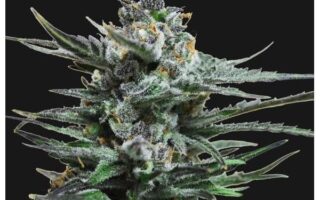Title: The Overlap Between Passion and Perception: Unpacking Marijuana in Psychology
As society’s relationship with marijuana continues to evolve, the dialogue surrounding its uses and implications has shifted significantly. No longer relegated solely to the shadows of stigma and prohibition, cannabis is increasingly approached through various lenses, not the least of which is psychology. This exploration invites us to consider not only the biological effects of marijuana but also how our minds interpret its presence in our lives. What does it mean to engage with this potent plant, both in terms of substance and psyche? In this article, we delve into the multifaceted definition of marijuana within the realm of psychology, examining its effects on cognition, behavior, and emotional health. From therapeutic applications to the societal perceptions that shape our understanding, join us as we navigate the intricate landscape where cannabis meets the mind, revealing insights that may redefine how we think about marijuana in our daily lives.
Table of Contents
- Understanding the Psychological Impacts of Marijuana Use
- Exploring the Connection Between Marijuana and Mental Health Disorders
- Cognitive Effects of Marijuana: What Research Reveals
- Strategies for Responsible Marijuana Consumption and Mental Well-Being
- Q&A
- Concluding Remarks
Understanding the Psychological Impacts of Marijuana Use
Exploring the psychological dimensions of marijuana use reveals a complex interplay between the substance and the mind. Cannabis compounds, particularly THC, interact with the endocannabinoid system, influencing mood, perception, and cognition. Users often report effects ranging from relaxation and heightened sensory perception to anxiety and paranoia, depending on individual predispositions and dosage. Some studies suggest that frequent use may lead to alterations in brain structure, particularly in areas associated with memory and emotional regulation. This variability underscores the importance of understanding both short-term and long-term psychological consequences that can arise from recreational and medicinal use.
Additionally, the social context of marijuana consumption plays a crucial role in shaping the experiences of users. Factors such as peer influence, personal history, and environment can significantly impact the psychological outcomes associated with use. As evidenced in recent research, individuals who use marijuana in supportive environments may experience fewer negative psychological effects compared to those who use it in high-stress contexts. Here’s a simple overview of some potential psychological effects related to marijuana use:
| Psychological Effects | Positive Effects | Negative Effects |
|---|---|---|
| Relaxation | ✔️ | |
| Heightened Senses | ✔️ | |
| Anxiety | ✔️ | |
| Cognitive Impairment | ✔️ | |
| Altered Mood | ✔️ | ✔️ |
Exploring the Connection Between Marijuana and Mental Health Disorders
The relationship between marijuana and mental health is a complex one, marked by contrasting perceptions and emerging research. On one hand, cannabis has been recognized for its potential therapeutic properties, providing relief for conditions such as anxiety and PTSD. Many patients report using marijuana as an alternative to traditional medications, citing improvements in their overall well-being. However, the effects can vary significantly depending on individual biology and specific mental health conditions, leading some users to experience exacerbated symptoms or adverse effects. This variability has sparked debates in both scientific circles and among the general public.
Research indicates that certain compounds in cannabis, known as cannabinoids, interact with the brain’s endocannabinoid system, which plays a crucial role in regulating mood and emotional responses. A closer look reveals the following key points:
- Potential Benefits: Relief from anxiety, reduced symptoms of depression, and improved sleep quality.
- Risks: Possible increase in anxiety, substance use disorders, and the onset of psychosis in predisposed individuals.
- Varied Responses: Individual reactions can differ based on genetics, dosage, and the method of consumption.
| Condition | Cannabis Effect |
|---|---|
| Anxiety | Potential relief for some users |
| Depression | Mixed results; some may find symptom alleviation |
| PTSD | Reported benefits in symptom management |
| Psychosis | Increased risk for vulnerable populations |
Cognitive Effects of Marijuana: What Research Reveals
The impact of marijuana on cognitive functions has been the subject of extensive research, revealing a complex relationship between cannabis use and mental processes. Studies indicate that while some users report enhanced creativity and heightened sensory perception, regular use, particularly during formative years, could lead to cognitive decline. In particular, findings suggest that marijuana may affect areas such as attention, memory, and executive functioning. Factors such as dosage, frequency of use, and age of onset are crucial in determining the degree of these effects.
Further research highlights the nuances in cognitive repercussions. Many studies categorize the cognitive effects into short-term and long-term impacts, leading to varied findings. Some of the observed effects include:
- Short-term effects: Temporary impairment in memory and attention.
- Long-term effects: Potential learning difficulties and decreased verbal skills.
- Variability: Effects often dependent on genetics, individual brain chemistry, and environment.
To provide a clearer understanding, the following table summarizes key cognitive effects identified in recent studies:
| Cognitive Function | Short-term Effect | Long-term Effect |
|---|---|---|
| Memory | Impaired recall | Possible decline in overall memory retention |
| Attention | Difficulty concentrating | Potential sustained attention deficits |
| Executive Functioning | Slower processing | Reduced ability to plan and organize |
Strategies for Responsible Marijuana Consumption and Mental Well-Being
Engaging in marijuana consumption can have a variety of effects on mental health, making it crucial to adopt mindful strategies. Establishing a dose limit is essential; users should start with a small amount and gradually increase until they find a level that feels right for them. This helps to minimize anxiety or other adverse side effects that can sometimes arise with THC use. Additionally, creating a comfortable and safe environment can enhance the experience. Surrounding oneself with supportive individuals and having a calm space can significantly impact how marijuana affects one’s mental state.
Maintaining a balanced approach is also important for fostering mental well-being. Incorporating mindfulness techniques can help users remain present and attentive during their experience. Practices such as deep breathing or gentle meditation can diminish feelings of paranoia that may occur. Engaging with marijuana during intentional activities, such as art or music, can promote creativity and joy without overwhelming the user. Here are some strategies to consider:
- Prioritize quality over quantity: Choose strains that promote relaxation and have a balanced THC to CBD ratio.
- Set intentions: Before consuming, reflect on what you hope to gain from the experience.
- Stay hydrated: Drinking water can counteract dryness and keep the body feeling good.
- Reflect on your experience: Journaling after consumption may help process feelings and thoughts.
Q&A
Q&A: Understanding the Intersection of Marijuana and Psychology
Q1: What is marijuana, and what are its primary components?
A: Marijuana, derived from the Cannabis plant, is a psychoactive substance often used for its stimulating and relaxing effects. The primary components of marijuana are cannabinoids, with the most notable being tetrahydrocannabinol (THC) and cannabidiol (CBD). THC is responsible for the euphoric ‘high,’ while CBD is often associated with therapeutic properties without the intoxicating effects.
Q2: How does marijuana affect the brain psychologically?
A: Marijuana interacts with the brain’s endocannabinoid system, which plays a vital role in regulating mood, memory, and cognition. THC stimulates the release of dopamine, a neurotransmitter that contributes to feelings of pleasure and reward. This interaction can lead to altered perceptions, enhanced mood, and changes in cognitive function, potentially affecting tasks requiring focus and memory.
Q3: Can marijuana use lead to psychological dependency?
A: While not everyone who uses marijuana becomes dependent, it is possible for some individuals to develop a psychological dependence on it. Symptoms can include cravings, continued use despite negative consequences, and reliance on the drug to cope with stress or anxiety. The risk of dependency varies based on factors like frequency of use, personal history, and individual psychology.
Q4: What psychological effects are commonly associated with marijuana use?
A: Users often report a range of psychological effects, including relaxation, heightened creativity, altered perception of time, and reduced anxiety for some. However, it can also lead to adverse effects such as paranoia, anxiety, impaired memory, and in certain cases, the exacerbation of pre-existing mental health conditions. These varied effects highlight the importance of individual differences in response to marijuana.
Q5: How do psychologists view the therapeutic use of marijuana?
A: Psychologists view the therapeutic use of marijuana with a nuanced perspective. While some studies suggest that it may help alleviate conditions such as chronic pain, anxiety, and PTSD, others caution against its use, particularly for individuals with a history of substance abuse or certain mental health disorders. This makes a balanced, individualized approach essential in considering marijuana for therapeutic purposes.
Q6: What role does research play in understanding marijuana’s psychological effects?
A: Research is critical in unpacking the complexities surrounding marijuana and its impact on psychological health. Ongoing studies explore both its benefits and risks, examining long-term effects, different strains, and dosage variations. This research helps frame public policy, clinical practices, and societal attitudes toward marijuana, contributing to a more informed understanding of its place in mental health.
Q7: What should individuals consider if they are thinking about using marijuana for psychological reasons?
A: Individuals should carefully consider their personal mental health history, the potential for dependency, and any existing medications or treatments. It’s advisable to consult healthcare professionals to better understand how marijuana may interact with their unique psychological profile. Additionally, understanding local laws and regulations surrounding marijuana use is vital for responsible consumption.
Q8: What is the future of marijuana research in psychology?
A: The future of marijuana research in psychology is promising, with an increasing willingness to explore its effects scientifically. As societal attitudes shift and legislation evolves, more rigorous studies are likely to emerge, focusing on both the therapeutic potential of cannabis and the risks associated with its use. This growing body of knowledge will contribute to more comprehensive mental health strategies and a better understanding of marijuana’s role in psychological well-being.
Concluding Remarks
the intersection of marijuana and psychology unveils a complex tapestry woven with threads of culture, medicine, and neurobiology. As we continue to explore the multifaceted definitions and connotations of marijuana within psychological frameworks, it becomes clear that understanding this plant requires more than just a superficial glance. Whether viewed through the lens of therapeutic potential or the challenges of misuse, the dialogue surrounding marijuana invites us to reconsider our perceptions and beliefs.
As research evolves and societal attitudes shift, the conversation will likely remain dynamic and nuanced. By expanding our understanding of marijuana through the principles of psychology, we can foster a more informed discourse that prioritizes compassion, education, and a balanced perspective. Ultimately, the journey to comprehend this ancient herb’s impact on the human psyche is not merely an academic endeavor but a vital quest that touches on the very essence of human experience itself.



